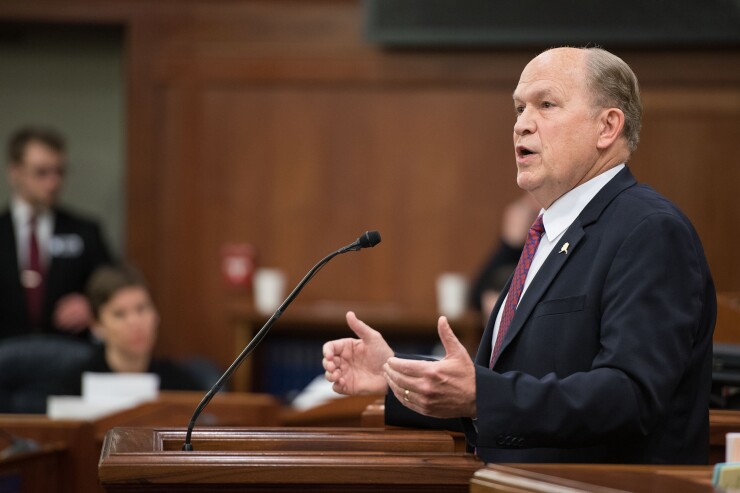Alaska Gov. Bill Walker signed state budget bills this week that will for the first time draw from the Alaska Permanent Fund to cover operating expenses.
At a ceremony Wednesday at the University of Alaska, Anchorage, Walker signed four bills for fiscal year 2019, including a $6.7 billion general fund operating budget and a $1.3 billion capital plan.

One of the bills allows for a 5.25% draw from the permanent fund — a pool of oil and gas tax revenues invested over the years that pays residents an annual dividend. The fund would pay residents a $1,600 dividend, under the new law.
Walker vetoed a portion of the bill that would have allowed the state to overdraw from the fund in certain circumstances.
In a press release, Walker’s office said allowing the use of the fund for operating expenses will cut the state’s budget deficit from $2.4 billion to $700 million.
“This fiscal package is a statement of our shared values as Alaskans,” Walker said in a statement. “Passing a sustainable budget and the Permanent Fund Protection Act are the biggest steps Alaska has taken in the last five years to turn the corner toward a stable future.”
Walker’s office touted a recent boost from S&P Global Ratings, which
The revision is the first positive news from a major credit rating agency since the state’s fiscal crisis began in 2014 and a sign that “Alaska’s economy has turned a corner,” Walker said.
All three major credit rating agencies downgraded the state in 2015 due to falling oil prices and state expense outpacing revenues.
Other key features of the budget include a $10 million increase to the University of Alaska budget, a $20 million increase in school funding and $9.5 million to modernize the state’s outdated 911 emergency response system.
Walker has not yet taken action on a bill that would affect the state’s bonding ability.
In April, the legislature passed a bill that would lower the state’s pension bond authority to $1.5 billion from $5 billion. Supporters described it as a compromise that would preserve the state’s ability while increasing fiscal control.





